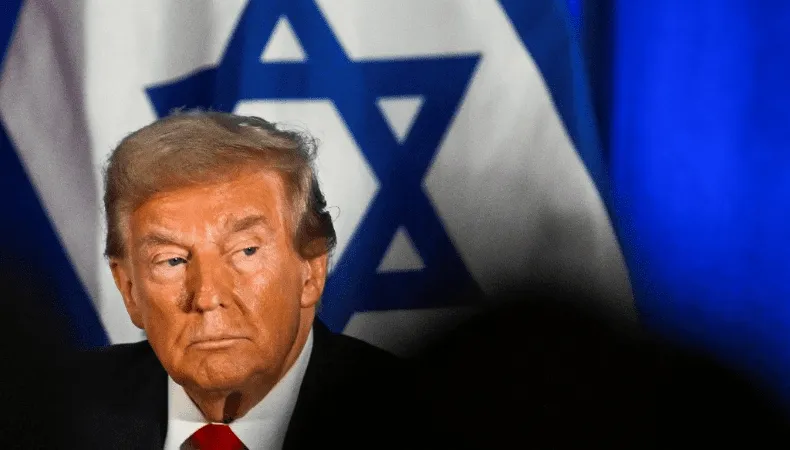The ongoing conflict between Israel, Gaza, and Lebanon has drawn intense global scrutiny, with international leaders weighing in on the complex situation. One of the most significant and recent developments comes from Turkish President Recep Tayyip Erdogan, who has called on former U.S. President Donald Trump to stop U.S. military support to Israel. This bold appeal adds another layer of diplomatic tension to an already volatile region and may have far-reaching consequences on both U.S.-Turkey relations and the broader Middle East peace efforts.
A Call to Halt Arms Support: What It Means
Erdogan’s call for a cessation of U.S. arms support to Israel comes amidst the deepening crisis in Gaza and Lebanon, where civilians continue to bear the brunt of the violence. The Turkish president argues that halting military aid to Israel could be a critical step in reducing the scale of violence and encouraging peace in the region. Erdogan has long been an outspoken critic of Israel’s military actions, particularly in Gaza, and this recent statement further emphasizes his stance on the Israeli-Palestinian conflict.
Turkey, under Erdogan’s leadership, has positioned itself as a vocal advocate for Palestinian rights. Over the years, Turkey has consistently opposed Israel’s military operations in Gaza, which Erdogan has condemned as disproportionate and unjust. With this call to Trump, Erdogan is pushing for a fundamental shift in how the U.S. engages with Israel in light of the current conflict, which has seen significant casualties and devastation.
U.S.-Israel Relations: A Strong Alliance Under Scrutiny
The United States has historically been one of Israel’s most important allies, providing substantial military aid, defense systems, and diplomatic support. U.S. military assistance to Israel is critical to the country’s defense strategy, including advanced weaponry, missile defense systems like the Iron Dome, and fighter jets. The U.S. has also vetoed multiple United Nations resolutions critical of Israel, maintaining a strong pro-Israel stance on the international stage.
Erdogan’s call to halt this support puts immense pressure on U.S. policy. While President Joe Biden has maintained support for Israel, even in the face of growing international calls for restraint, Erdogan’s statement challenges this longstanding alliance. By specifically targeting Trump, Erdogan may be seeking to influence the former U.S. president’s position and his base, who still have considerable influence over U.S. foreign policy.
However, the call to stop arms supplies to Israel is not just a political maneuver; it reflects Turkey’s broader foreign policy objectives and its desire to assert itself as a key player in Middle Eastern geopolitics. Erdogan has long criticized Western powers for their approach to the Israeli-Palestinian conflict and has worked to build stronger ties with Middle Eastern countries that share his views.
Diplomatic Ramifications: Turkey’s Position on the World Stage
Erdogan’s call for a halt in U.S. arms support comes at a time when global leaders are scrambling to address the humanitarian crisis caused by the ongoing conflict. As Israeli airstrikes continue in Gaza and Hezbollah rockets strike Israel, calls for a ceasefire grow louder. International powers, including the European Union and the United Nations, have urged both Israel and militant groups in Gaza to allow for humanitarian aid and an immediate ceasefire to protect civilians.
Erdogan’s call, however, shifts the conversation toward broader international responsibility and the role of foreign powers in fueling the conflict. By pressuring the U.S. to reevaluate its support for Israel, Turkey is positioning itself as a leader in the push for a more balanced approach to the Middle East conflict, one that also addresses Palestinian rights and security.
This appeal adds further tension to U.S.-Turkey relations, which have been strained in recent years over a variety of issues, including Syria, NATO defense strategies, and Turkey’s increasing alignment with Russia. Erdogan’s move could complicate efforts to repair relations between the two nations, especially as Turkey continues to advocate for policies that are at odds with U.S. priorities in the region.
A Divided International Community
The response to Erdogan’s call is likely to vary across the international community. While some countries may support Turkey’s position, arguing that the U.S. should reevaluate its role in the Israeli-Palestinian conflict, others may view this as an unwarranted challenge to the U.S.-Israel alliance. The situation is further complicated by the diverse interests at play in the Middle East, where geopolitical rivalries and alliances often shape the outcome of conflicts.
As the Israel-Gaza-Lebanon conflict continues to evolve, global leaders will need to navigate a complex diplomatic landscape. Erdogan’s call to Trump is a direct challenge to longstanding U.S. policy in the region, but it also highlights the urgency of addressing the humanitarian crisis and exploring new paths to peace.
The Road Ahead
Erdogan’s call to halt U.S. arms support to Israel is more than just a political statement; it is a reflection of Turkey’s broader vision for the Middle East and its role in shaping international policy. As tensions continue to rise in Gaza and Lebanon, the international community will be watching closely to see how the U.S. and other world powers respond to Erdogan’s appeal.
The road to peace in the Middle East remains fraught with challenges, and while halting military support may not be a panacea, it could be an important step toward a broader, more balanced approach to the Israeli-Palestinian conflict. The coming weeks and months will likely provide critical insights into whether Erdogan’s call will spark a shift in U.S. foreign policy or if it will be dismissed as another challenge to Israel’s right to self-defense. Either way, the situation remains tense, and the eyes of the world will remain on the Middle East.

